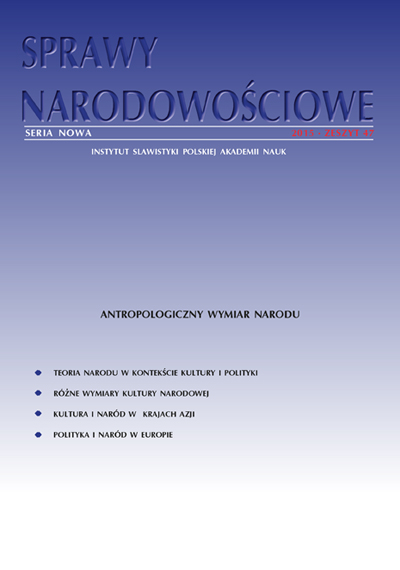Naród kontra lewactwo. Polityczne kategoryzacje rzeczywistości w folklorze internetowym
Nation against “the leftist.” Political categorizations of the reality in internet folklore
Author(s): Michał RauszerSubject(s): Social Sciences, Sociology, Social development
Published by: Instytut Slawistyki Polskiej Akademii Nauk
Keywords: National identity; Internet folklore; contagion and similarity magic; left-wing
Summary/Abstract: In his well known essay “Left-wing” communism: an infantile disorder Lenin used the Russian term “levizna” to name a naïve strategy of West European communist parties. This term is usually translated as “Left-Wing” but it does not show its disregarding to West communist politics in Lenin’s eyes. In Polish there is anther tradition, used by communist nomenclature, to ridicule left wing movement (e.g. in 1968), and it is translated as “lewactwo” (translations such as”lefty”, “leftie” do not fit due to historical context and the Russian grammar). Nowadays the term is used by right-wing movements and politicians to humiliate each left-wing idea as childish (opposed to “adult” right-wing). In my article, I intend to show how this “lewactwo” notion works as a barrier of national identity, as well as a screen of phantasy. The empirical part of my work was based on Internet folklore, such as mems, commentaries, short YouTube films and also on offers of shops with patriotic clothes and gadgets (because their offer is rooted in this folklore, and they first make some “patriotic context,” e.g. something interesting in history, and then offer clothes etc. in relation to this. So their merchandise is strictly based on Internet folklore and work as “barometer” for it). My analysis shows how the notion “lewactwo” works as an ideological and phantasmatic barrier for national identity. This barrier shows how all these right-wing movements construct positive set of the “nation.” This set contains positive as well as negative (put together with “lewactwo”) elements, like notions, ideas and signs with which they must be contiguous to be part of the nation (e.g., in an anthropological notion of magic based on contagion and similarity). The term “lewactwo” is also used as a screen of phantasy, where you are projecting all features which exclude you from the community and your positive “national identity.”
Journal: Sprawy Narodowościowe
- Issue Year: 2015
- Issue No: 47
- Page Range: 37-55
- Page Count: 19
- Language: Polish

